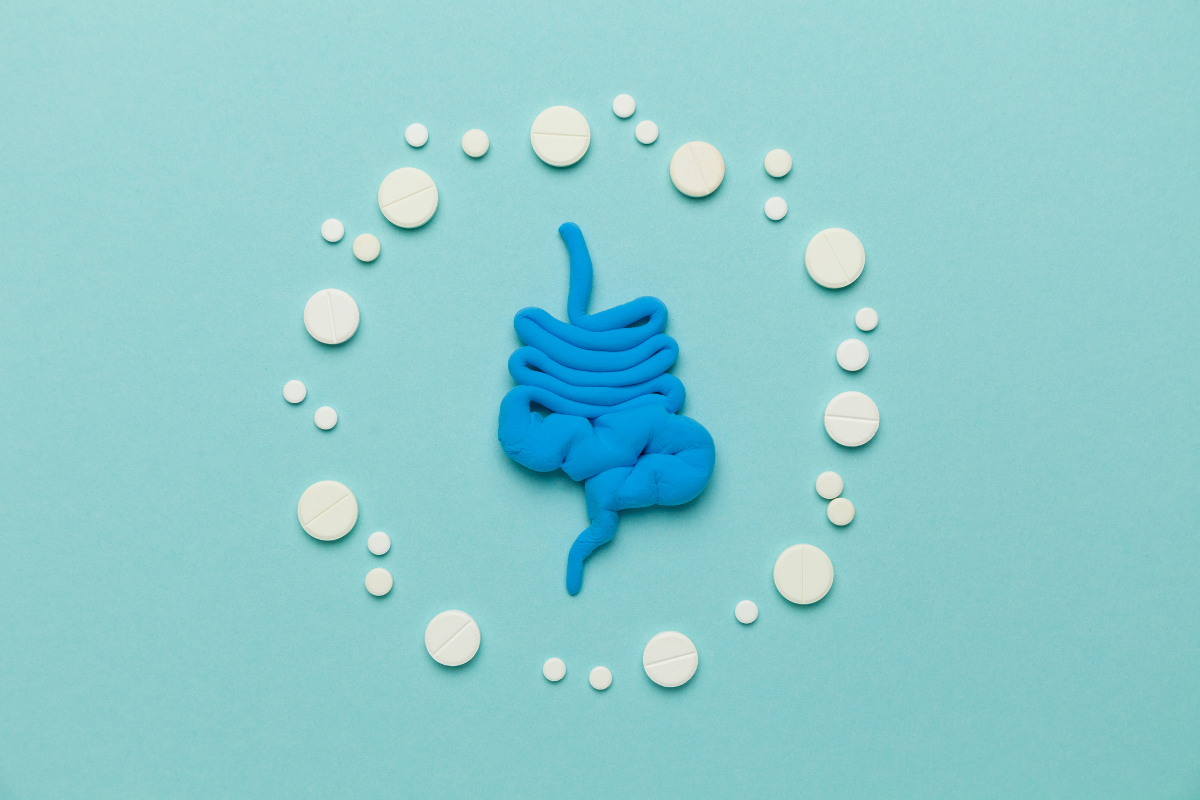How Long Does It Take to Recover from Vitamin D Deficiency?

Recovering from vitamin D deficiency is a process that's not just about taking supplements or eating vitamin-D-rich foods; your body needs time to adjust and utilise the nutrient effectively. Vitamin D is crucial for bone health, and its deficiency can lead to a range of health issues. Once identified, taking steps towards recovery is essential, and it helps to understand the timeline involved.
The time it takes for vitamin D levels to normalise in your body can vary, depending on the severity of the deficiency, the treatment method, and individual health factors, such as your digestive health and how your body absorbs nutrients. Generally, noticeable improvements may be observed within a couple of months, but it can take longer for vitamin D levels to fully stabilise.
Key Takeaways
- Recovery from vitamin D deficiency varies but typically sees improvement within a few months.
- Maintaining optimal vitamin D levels is crucial for bone health and overall wellbeing.
- Consistent intake through diet, supplements, and safe sun exposure can prevent deficiency.
Understanding Vitamin D Deficiency

Vitamin D deficiency is a concern as it's an essential vitamin for maintaining healthy bones and supporting immune function. If you're lacking this vital nutrient, it could lead to several health problems.
Causes and Risk Factors
Your body primarily gets vitamin D through direct exposure to sunlight, as your skin synthesises it upon contact with UVB rays. However, limited sun exposure due to living in higher latitudes, indoor lifestyle, or usage of sunscreen can hinder this process. Additionally, factors such as a diet lacking in vitamin D-rich foods (like fatty fish or fortified products), certain medical conditions that affect absorption, and darker skin pigmentation can increase your risk of deficiency.
- Limited Sunlight: Short daylight hours in the UK winter
- Indoor Lifestyle: Reduced outdoor activity, especially in urban settings
- Diet: Low intake of fortified foods or fatty fish
- Medical conditions: Disorders like coeliac or Crohn’s disease
Signs and Symptoms
Vitamin D deficiency might not always present obvious symptoms until levels become very low. However, signs to look out for include muscle weakness, general fatigue, and pain in bones. In children, severe deficiency can lead to rickets - softening and weakening of bones. In adults, the equivalent condition is called osteomalacia. Psychological effects can include depression, due to the role of vitamin D in brain health.
- Bone Pain: Can be a dull ache or severe pain
- Muscle Weakness: May lead to difficulty with daily activities
- Depression: Mood changes and unexplained fatigue
Diagnosing Deficiency
The definitive way to diagnose vitamin D deficiency is through a blood test. It measures the level of 25-hydroxyvitamin D [25(OH)D] in your blood, which reflects how much vitamin D your body has. The normal range is typically between 50 nmol/L to 125 nmol/L. A level below 50 nmol/L indicates a vitamin d insufficiency, and a level below 25 nmol/L indicates a severe vitamin D deficiency, which is a higher risk factor for bone diseases and fractures.
- Blood Test: Measures 25-hydroxyvitamin D concentration
- Normal Range: 50-125 nmol/L
- Deficient Range: <50 nmol/L; <25 nmol/L for severe deficiency
Treatment and Recovery

In overcoming vitamin D deficiency, your primary focus should be on orchestrating a steady influx of vitamin D through considered lifestyle changes and, if necessary, dietary supplements. This careful balance should be maintained with routine monitoring to ensure that optimal vitamin levels are achieved without exceeding safe limits.
Sunlight and Diet
Your body synthesises vitamin D upon sunlight exposure, so aim for 10–30 minutes of midday sun several times per week, depending upon your skin sensitivity and pigmentation. To bolster vitamin D levels naturally, include dietary sources like oily fish (salmon, mackerel), liver, red meat, and egg yolks in your meals.
Additionally, fortified foods such as certain cereals and milk offer an alternative intake method for vitamin D alongside other nutrients, particularly calcium, which works synergistically with dietary vitamin D.
Supplements and Dosage
Should sunlight and diet prove insufficient, vitamin D supplements can be an effective method to rectify deficiencies. Health professionals suggest the typical dose of vitamin D3 supplements is 800–1000 IU daily, but this can increase depending on the severity of the deficiency. It's critical to consult with your healthcare provider before starting any supplementation to determine the appropriate dosage and to avoid toxicity.
- Vitamin D3 Supplement Dosage:
- Mild deficiency: 800–1000 IU daily
- Moderate to severe deficiency: May require higher doses under medical supervision
Monitoring Progress
Regular check-ups to monitor vitamin D levels in the blood are essential, typically starting with a baseline measurement and follow-up tests every 3–6 months. Tracking progress is crucial to ensure the efficacy of the treatment plan and to make adjustments as needed. It's recommended not to self-adjust the dosage without medical advice to evade the risk of vitamin D toxicity.
Prevention and Maintenance

Preventing vitamin D deficiency and maintaining adequate levels of this nutrient are crucial for supporting bone health, muscle function, and the immune system. Adhering to certain lifestyle modifications while also engaging in regular health checks can help manage your vitamin D levels effectively.
Lifestyle Modifications
To maintain adequate vitamin D levels, it's important to balance sun exposure with skin protection. Aim for brief exposure to sunlight several times a week, as your skin synthesises vitamin D when exposed to the sun. However, be mindful of using sunscreen after a little while to protect against skin damage.
During the winter months or if you're at higher risk for deficiency, consider a maintenance dose of vitamin D as per public health guidelines. Including vitamin D-rich foods in your diet, such as oily fish, egg yolks, and fortified foods can also support your optimal vitamin d levels. For infants and children, it's vital to ensure they get their recommended daily allowance to support the development of their bones.
- Balance sunlight exposure and skin protection
- Brief sun exposure several times a week
- Apply sunscreen to prevent skin damage after initial exposure
- Incorporate vitamin D-rich foods into your diet
- Oily fish, egg yolks, fortified cereals
- Consider supplements if at risk
- Maintenance doses during winter or as advised
Regular Health Checks
Monitor your health with regular checks to assess your vitamin D status, especially vital for adults and children with increased needs or those having conditions affecting absorption. A simple blood test can determine if you're deficient and whether you may need a high-dose replacement or longer-term maintenance dose.
In consultation with your healthcare provider, you may also discuss the need for periodic testing to ensure your vitamin D levels remain within a healthy range, which supports your overall muscle, immune system, and heart health.
- Assess your vitamin D status through blood tests
- Consult with a healthcare provider to determine the need for supplementation and frequency of testing
- Follow-up regularly to adjust doses and diet as necessary
Implications of Vitamin D Deficiency

Understanding the implications of Vitamin D deficiency is crucial as it has far-reaching effects on various aspects of your health, including bone integrity, immune function, and mental well-being.
Bone Health
Vitamin D plays an indispensable role in calcium absorption and bone metabolism. A deficiency can lead to osteoporosis, a condition characterised by weak and brittle bones, increasing the risk of fractures. Particularly, your spine, hips, and wrists are areas commonly affected and may contribute to long-term debilitation.
Immune System Function
Your immune system's efficacy is partially contingent on adequate levels of Vitamin D. It's well-documented that insufficient Vitamin D increases susceptibility to infections and may have a link to autoimmune diseases. Moreover, research has hinted at Vitamin D's role in possibly reducing the risk of certain chronic illnesses, including heart disease and some forms of cancer, due to its immunomodulatory effects.
Mental Health Concerns
Vitamin D's influence extends to the brain and nervous system, impacting your mental health. Symptoms such as fatigue and muscle pain are often observed in those with low Vitamin D levels. Additionally, there is a correlated incidence of depression with Vitamin D deficiency, highlighting the importance of maintaining adequate levels for neurological and psychological health.
Frequently Asked Questions

In addressing the symptoms of vitamin D deficiency, specific timeframes and expectations are crucial for effective recovery. It's essential to understand how long it might take for symptoms to improve and what the recovery process entails.
What is the typical duration for recovering from a deficiency in vitamin D?
The time it takes to correct a vitamin D deficiency typically ranges from 8-12 weeks when taking supplements, depending on the severity of the deficiency and individual factors such as diet and lifestyle.
How rapidly can one expect improvements in health after commencing vitamin D supplementation?
You might start feeling better within days of beginning supplementation, especially if you had very low levels of vitamin D to start with. However, for many, the significant health benefits will become more noticeable after several weeks of consistent supplementation.
What duration is required for vitamin D supplements to influence mood disorders such as depression?
While vitamin D supplements can help improve mood disorders like depression, it may take several months for sufficient levels to build up and potentially have a more noticeable impact on mood.
Can consistent exposure to sunlight significantly boost vitamin D levels, and if so, over what period?
Regular sun exposure can increase vitamin D levels naturally. Over the course of a few weeks to months, providing your skin is exposed to sunlight without sunscreen for short periods (about 10-15 minutes a day), you may notice an improvement in vitamin D levels, depending on your location, skin type, and the time of year.
Is it possible to achieve complete recovery from a deficiency in vitamin D, and what might the timeframe be?
Yes, a complete recovery from vitamin D deficiency is possible. For severe cases, the recovery might take 4-6 months with appropriate supplementation and lifestyle changes such as diet and sunlight exposure.
What are the recommended timeframes for using high-dose vitamin D3 supplements, and are there any risks?
High-dose vitamin D3 supplements are usually prescribed for a short duration, often several weeks, under medical supervision. Over the long term, high doses can pose risks such as hypercalcaemia, so it is crucial to adhere to recommended guidelines and consult with a healthcare provider.







